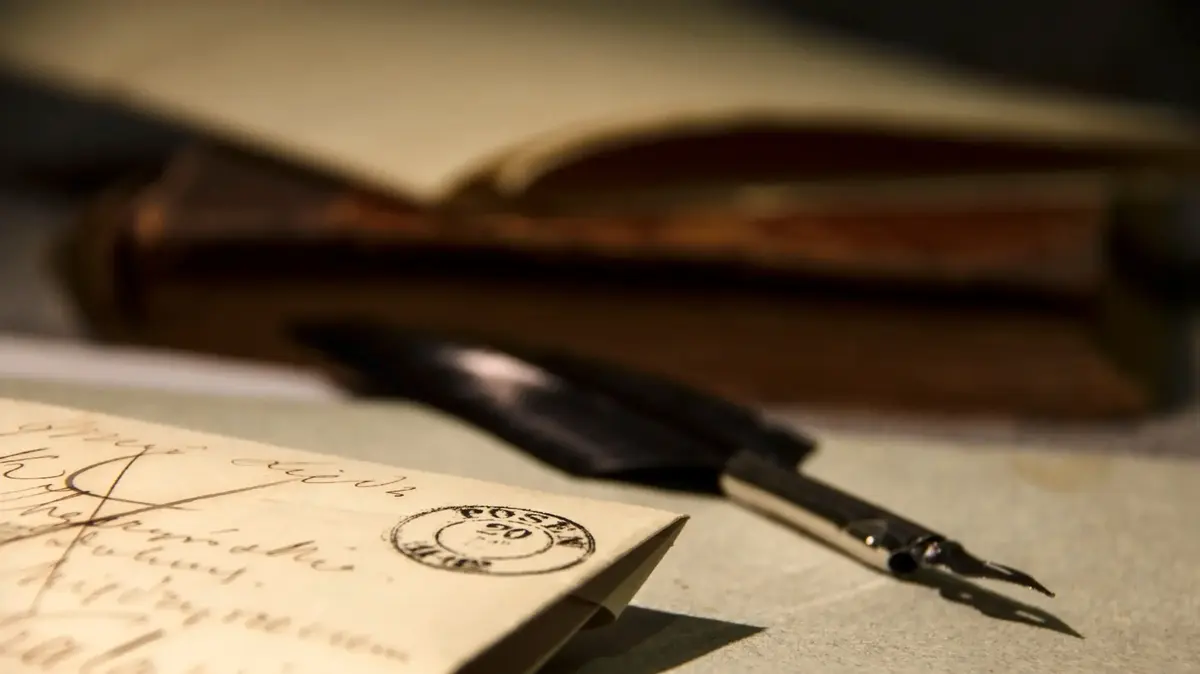An old letter (Photo: ShutterStock)
Walla!
Judaism in collaboration with the teaching house by the Chabad Halacha Institute in a fascinating weekly section: And this week - the ancient letter was discovered to be fake - and the old friends quarreled badly. Should Moshe, the well-known and trusted antiques dealer, pay his rich friend for the fake letter that was burned?
Background
:
Moshe is an antiques dealer It has been known for years that he collects letters from rabbis and various ancient Torah books, when he locates elders or their relatives (after their death), checks the reliability of the goods, pays for them and then sells them at a profit to antique collectors or various customers during his travels around the world.
Moshe was known for his professionalism, honesty and reliability regarding the veracity of his sources and the reliability of the documents and letters, and nothing came out of his hands forgery at all. This increased his circle of customers who were satisfied with the quality of the goods and confident in their reliability without a shadow of a doubt.
Once, during one of his travels around the world, Moshe located through one of his acquaintances at another antiques dealer, a precious and rare ancient letter.
The above-mentioned merchant was not a particularly honest person and had a sense of forgery in a way that it was not at all distinguishable because it was not the original document... This is how the same merchant deceived many of the antiques dealers, while he was 'producing' from under his hands - and actually 'inventing' and producing with his own hands In exact forgery - letters from rabbis, various souvenirs and other antique ornaments and sold to the highest bidder.
Except that Moshe and his fellow merchants knew nothing about it. That letter was very valuable, and it would have looked ancient and original and would not have been seen as a forgery at all, and because of this, after Moshe did all the tests to check the reliability and authenticity of the letter - decided to buy it.
After a few days, a regular customer, his old friend, a very rich man who lives abroad, heard about the aforementioned letter and offered Moshe a hefty sum for it.
Moshe sold him the letter.
The aforementioned rich man insured the letter (like the other works of art in his possession) with an insurance company abroad owned by gentiles.
And one day a fire broke out in the rich man's mansion and the precious letter was burned.
The rich man immediately called the insurance company and they covered the cost of the expensive letter, which was estimated at tens of thousands of dollars and more.
Moshe the merchant, a friend of the rich man, was very sorry to hear about the fire and tried to comfort his friend with words.
About a year passed, and one day they called a rich man from the FBI and informed him that after a strenuous investigation that lasted over several years in several places around the world, they found the forger and con man who forged with impressive skill hundreds and thousands of fake letters, and not only that, but they obtained from his house a meticulous list of all works The fake art he created, among them this letter that the rich man bought from Moses, that he bought from the above.
The authorities tried to track down all those who bought the letters from the man in order to understand the extent of the phenomenon, and therefore asked the rich man to see the aforementioned letter. However, he told them that this letter had already been burned in a fire he had and the insurance covered it.
Immediately after this conversation, the rich man called Moshe and shouted at him: Do you know that you sold me a fake? Although it is not your fault, it is indeed a sophisticated fake, it also took the police years to figure it out, but I demand all my money for this 'work of art' back!
But Moshe claims this: after all, you already received All the money for the letter - which no longer exists - from the insurance that paid you for the burning of the letter, and why would you come to me again with claims, didn't you get your money? And
the question arises
:
Is Moshe the merchant right and exempt from paying, or is it because he did not intend and did not know and was not given Accusing him of forgery in the first place - does he still need to return the full amount of money for the forged letter?
Short answer
:
Moshe the merchant must pay the full amount of the money for the forged letter, and there is no connection between this payment and the money the rich man received from the insurance for the letter.
Answer in detail
:
First, one must know the well-known and famous rule, that 'everyone who takes for nothing - does not take but the whole thing from any defect'.
In other words, in order for the sale to apply to a certain object, this object must be free of any defect.
'What deformity?
If the members of the state agree that it is a defect because of which it is returned from it - it is returned, and if not - it is not returned'.
It was therefore found that this precious and rare letter was nothing but a fake document worthless from the beginning, and it is clear to anyone with a reasonable mind that no one would buy a fake "ancient" document.
In any case, it is understood that the sale of the 'letter' never happened and was never done, so it turns out that the rich man paid Moshe the merchant money for nothing, on decorated paper worth nothing, which Moshe must return.
As for the claim about the insurance money that the rich man received - there is no truth in this claim, because the insurance policy is not Moshe's or anyone on his behalf, but purely the rich man's, for the letter at the time was still considered genuine.
What will the rich man do now (when it was discovered that the document is fake) in front of the insurance - it is none of Moshe's business.
Evidence for this, let's say the letter was real, and it was burned, but Moshe would have called the insurance company, asked for the money and presented evidence that the letter belonged to him - then indeed the rich man would have gotten into trouble with his insurance (and he would have had to prove that there was no truth in Moshe's words about the ownership of the document), but Does anyone think that because of the policy that the rich man paid for the letter - Moshe will receive the compensation for it?!
An insurance policy gives what is called "indemnity" - financial compensation for damage caused to the policy holder only, while the payment he pays is not only for the condition of the object only, but for the personal condition of the insurer/insured, and of course it is not related to Moses at all, who did not No investment on his part in insurance and the like.
Therefore, there is no claim regarding the insurance money, related to the fact that Moshe the merchant has to pay all the money, for the transaction that (in hindsight it turned out that) did not take place on the fake letter.
Sources: Rambam's Laws of Sale Petu Halachah 5, Shu'a Chom C. RLB Sa. 67 (Regarding the return of the money from the rich for insurance - in the company of gentiles, the rich is not obliged to return anything from the company of Jews, see Shu'a Chom Raso SA and Achmal), the Laws of the Torah Salah
There is no halachic ruling in this section and one should contact the rabbi or the house of instruction in each individual case.
Written by Rabbi Yitzhak Eitan Mizrahi, Chabad Halacha Institute.
For comments:
Judaism
news
Tags
Judaism









